April 15, 2025 | 08:26 GMT +7
April 15, 2025 | 08:26 GMT +7
Hotline: 0913.378.918
April 15, 2025 | 08:26 GMT +7
Hotline: 0913.378.918
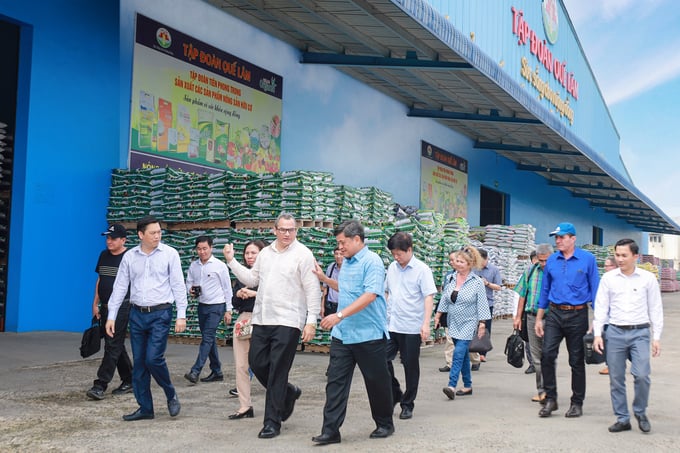
The delegation of the Cuban Ministry of Agriculture and representatives of the Ministry of Agriculture and Rural Development visited Que Lam Group. Photo: Hoang Anh.
On May 16, within the framework of a working visit to Vietnam, Deputy Minister Maury Hechavarria Bermudez visited and worked with Que Lam Group. The delegation of the Ministry of Agriculture of Cuba visited the Que Lam Biotech microbial organic fertilizer factory in Vinh Phuc, which has a capacity of 200,000 tons/year, the largest in the North, as well as Que Lam biosafety organic pig raising model which follows the “5 no standards” (no antibiotics, no weight gainers, no heavy metal residues, no lean substances, no colorants).
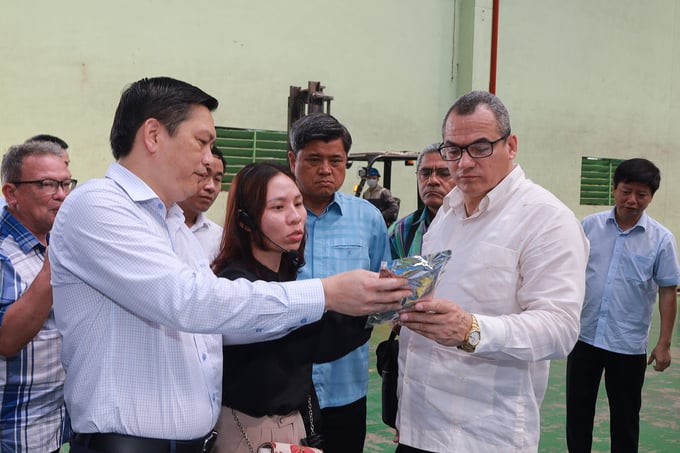
The delegation visited the Que Lam Biotech microbial organic fertilizer factory in Vinh Phuc. Photo: Hoang Anh.
“The delegation came here with the goal of understanding, learning, and finding opportunities for cooperation, thereby developing organic agriculture and circular agriculture in Cuba.
"Seeing the Que Lam Biotech factory with our own eyes, not only we realize the large scale but also the use of modern technology, meeting the strict standards of the world. The ecosystem of organic agriculture, circular agriculture, closed procedures from animal husbandry to crop production, together with Que Lam’s exclusive microbiological technology creates a very good foundation. This is what all countries need to develop agriculture in line with the common world trend," said Deputy Minister Bermudez.
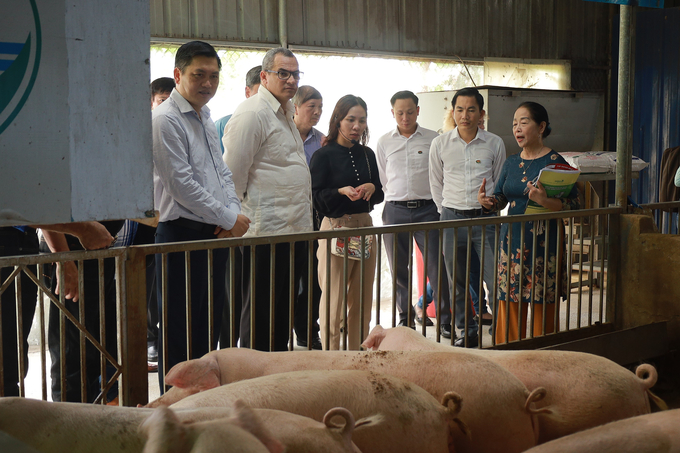
Que Lam biosafety organic pig raising model follows the “5 no standards”. Photo: Hoang Anh.
According to Deputy Minister Bermudez, after visiting the model of Que Lam Group, the delegation realized that this is the ideal model to apply to Cuba. With the development of the sugarcane industry, Cuba has an abundant source of waste materials for the production of microbial organic fertilizers. Therefore, the Ministry of Agriculture of Cuba proposed the Ministry of Agriculture and Rural Development of Vietnam and Que Lam Group pay attention to help in research, consider investment, and support Cuba in developing organic agriculture and circular agriculture.
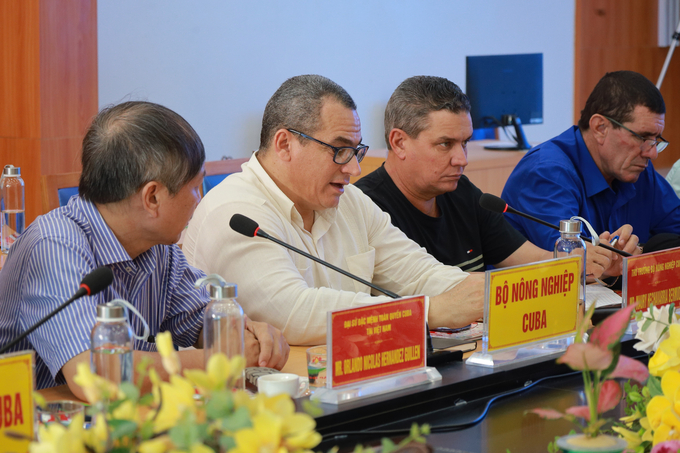
Deputy Minister of Agriculture Maury Hechavarria Bermudez shared his thoughts at the meeting with Que Lam Group. Photo: Hoang Anh.
Mr. Khac Ngoc Ba, Deputy General Director of Guilin Group relayed some information to the delegation of the Ministry of Agriculture of Cuba: “Que Lam Group has now become a leading enterprise in the field of organic fertilizer production and trading in Vietnam. The annual output of microbial organic fertilizer is approximately 1 million tons, not only meeting the domestic market but also exporting to other countries such as Laos and Cambodia”.
Que Lam Group is completing the 4F biosafety breeding complex project "Farm - Food - Feed - Fertilizer" in Thua Thien - Hue province. This is a circular economy model in agriculture with a total investment of VND 700 billion, considered a unique and most advanced project implemented for the first time in Vietnam. With exclusive microbiological technology, Que Lam has integrated organic agroproduction with circular agriculture, linked with many provinces and cities across the country, thus forming a widespread Que Lam ecosystem.
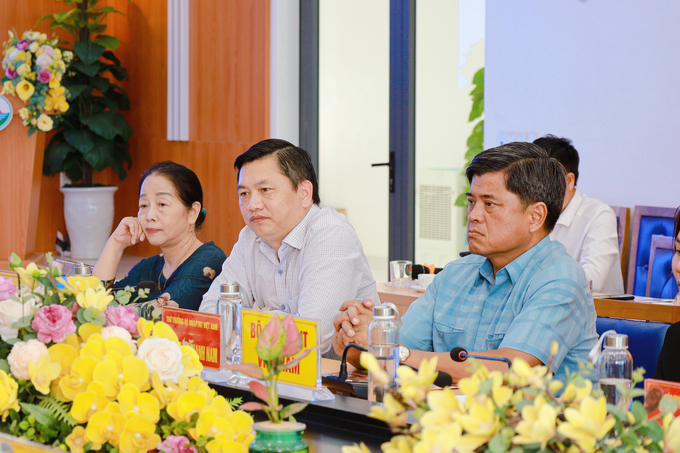
"Cuba needs to study mechanisms and policies in order to encourage Vietnamese businesses to invest," said Deputy Minister Tran Thanh Nam. Photo: Hoang Anh.
Concluding the meeting, Deputy Minister of Agriculture and Rural Development Tran Thanh Nam said that he recently had a business trip to Cuba and very much understood the difficulties that Cuba is facing, including difficulties in agroproduction”.
According to the Deputy Minister, with the spirit of brotherhood and comradeship between the two countries, the Ministry of Agriculture and Rural Development of Vietnam is always ready to support Cuba in terms of science and technology, particularly solutions to reduce pressure on the friend country’s agriculture.
One thing to note is that Cuba needs to consider mechanisms and policies to encourage Vietnamese businesses like Que Lam Group. It may be an agricultural promotion conference, or the intergovernmental conference (taking place in October), creating a favorable mechanism for Que Lam Group to invest in Cuba.
Deputy Minister Tran Thanh Nam said, ”In Vietnam today, businesses like Que Lam Group have organized production links with farmers and localities. And in order to do that, first of all, raising awareness and production capacity of farmers is crucial”.
The National Agricultural Extension Center of Vietnam, with a system up to the commune level, has transferred many models similar to Que Lam’s to farmers, thereby improving farmers' production capacity. Cuba can refer to these models to apply in domestic agroproduction.
Translated by Samuel Pham
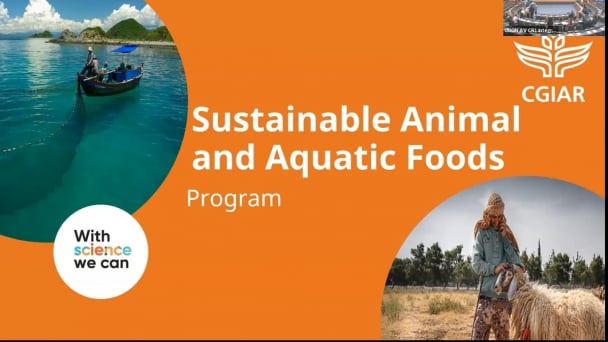
(VAN) The CGIAR’s Sustainable Animal and Aquatic Foods (SAAF) program represents a new approach that emphasizes the transformation of food systems toward sustainability.
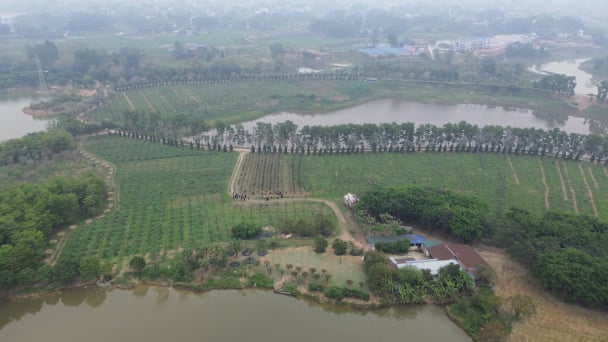
(VAN) Scientists assume that industrial agriculture has been 'outdated.' As a result, a comprehensive overhaul or a revolution in the direction of embracing ecological agriculture is needed.
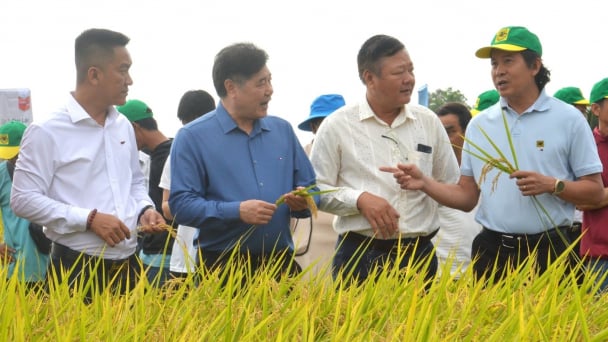
(VAN) The results from pilot fields are catalyzing the expansion of the One million hectares of high-quality, low-emission rice project in Kien Giang.
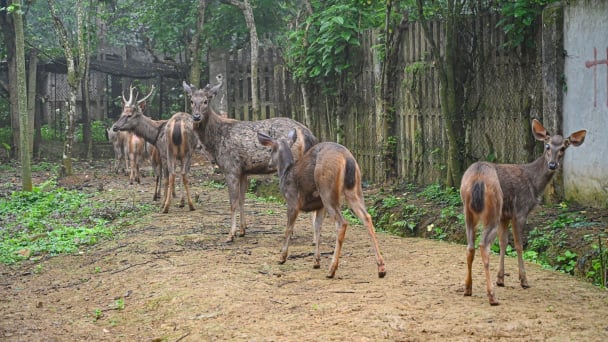
(VAN) On the morning of April 11, Cuc Phuong National Park received 18 individuals of endangered and rare wild animals from Da Nang city.
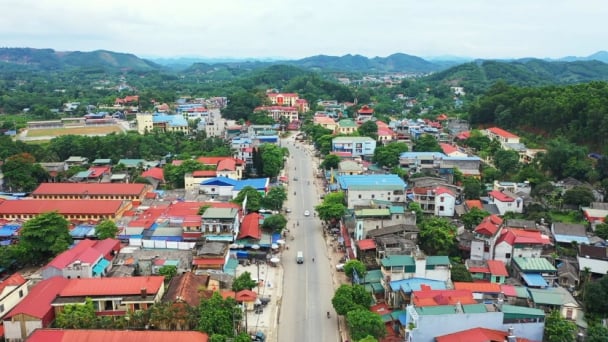
(VAN) FAO supports Vietnam in enhancing survey sampling techniques for the 2025 nationwide agricultural and rural census.

(VAN) By participating in the green transition, manufacturers become an indispensable part of the circular economy, contributing to resource optimization and environmental protection.
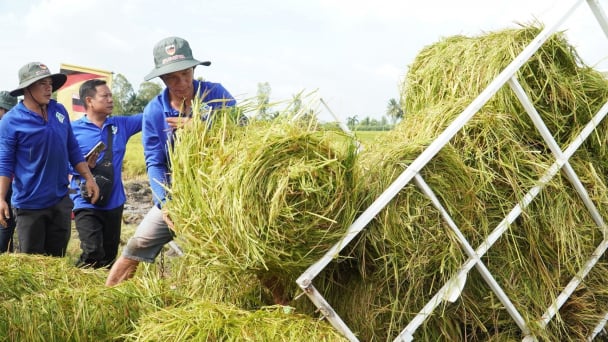
(VAN) The One Million Hectares of High-Quality and Low-Emission Rice Program can generate nearly 14 million tons of straw annually, posing an urgent requirement to diversify straw-based products.